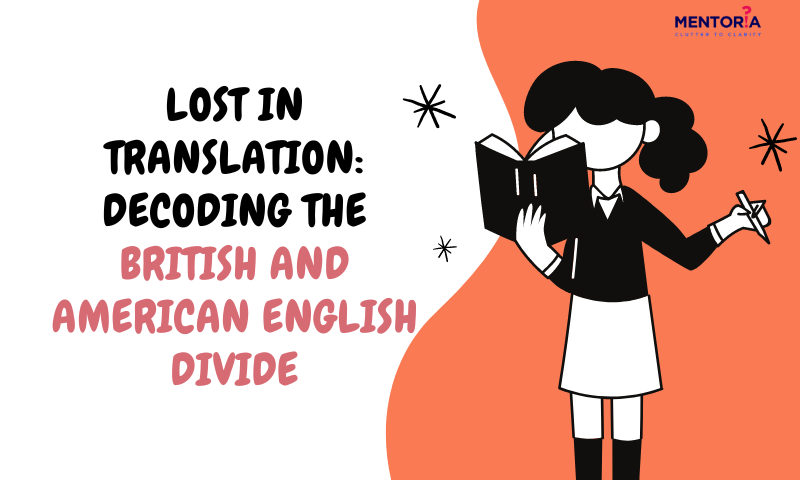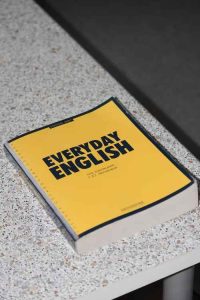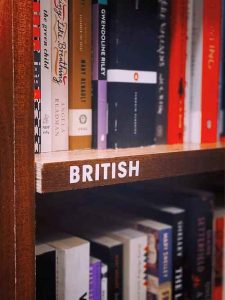Lost In Translation: Decoding The British And American English Divide

Jump to Section
Hey there, language enthusiasts! Have you ever found yourself confused while watching your favourite British TV show or browsing through an American blog? Well, fret no more, because we’re here to break down myths and spill some facts about the fascinating world of British and American English. From subtle spelling differences to distinct vocabulary choices, we’ll dive into the nuances that make these two English dialects uniquely delightful. Remember, whether you prefer “colour” or “colour,” the magic of English lies in its ability to connect people across continents, cultures, and dialects.
British And American English: Two Sides Of The Same Language Coin
Prepare yourself for an enchanting linguistic voyage that unveils the captivating nuances between British and American English. While these dialects share a common foundation, their unique paths have led to distinct variations in pronunciation, vocabulary, and even grammar. Explore how history, geography, and cultural influences have shaped these delightful dialects, making them two sides of the same fascinating language coin. From the rolling hills of the British Isles to the bustling streets of American cities, the rich tapestry of English diverges across the Atlantic.
Spelling Showdown: Colour Vs. Color, Theatre Vs. Theater
Ah, the age-old debate of spelling. Why do the Brits insist on adding a “u” to words like “colour” and “neighbour,” while Americans seem to have a love for dropping letters? Discover how British English often adheres closely to the etymology of words, while American English has embraced simplified spellings. Brace yourself for a showdown of letters, where “theatre” meets “theatre,” and “centre” goes head-to-head with “centre.”
Vocabulary: Lifts, Elevators, And A Whole Lot Of Confusion
From the quirky colloquialisms to the distinctive expressions, prepare to be amazed by the vast array of words that shape the language on both sides of the pond. From everyday items to specific terminology, these dialects showcase a vibrant array of words that can leave you scratching your head in confusion or bursting into laughter. Whether it’s referring to an elevator as a “lift” or a truck as a “lorry,” the variations in vocabulary reflect the diverse cultural contexts in which they evolved. Go on a linguistic safari and explore the lexicon that sets these dialects apart, while celebrating the colourful tapestry of the English language.
Food Frenzy: Biscuits, Cookies, And Chips Vs. Crisps
In the rich tapestry of linguistic differences between British and American English, the world of food holds a fascinating array of distinctions. First, let’s dive into the realm of biscuits and cookies. While Americans use “cookie” for sweet, baked treats, the British refer to them as “biscuits,” which encompass both sweet and savoury varieties. Moving on to the crispy delights, Americans enjoy their thinly sliced, fried potato snacks as “chips,” whereas the British prefer the term “crisps.” These subtle variations in culinary language not only add flavour to conversations but also reflect the cultural nuances that shape our language. So, next time you reach for a biscuit, cookie, chip, or crisp, savour the linguistic journey behind each delicious bite.
Slang And Idioms: Cheers, Mate! Getting Lost In Translation
Let’s discuss the intricate world of slang and idioms in both British and American English. These vibrant and expressive elements of language add a unique charm to everyday conversations, but they can also be a source of confusion and amusement for language learners. From “cheers, mate” to “howdy, partner,” these dialects boast an array of slang that reflects their unique cultural nuances. Idiomatic expressions can lead to hilarious misunderstandings or serve as delightful windows into the cultural psyche.
Pronunciation Predicaments: The Battle Of The “R”S
In the realm of language, an epic battle rages on—the battle of the “R”s. Welcome to the world of pronunciation predicaments, where the letter “R” takes on different forms in British and American English. From the elegant, non-rhotic sounds of British English to the robust, rhotic pronunciations of American English, these linguistic variations create a captivating contrast. Unravel the mysteries behind why Brits often drop their “r”s while Americans roll them with gusto. Immerse yourself in the rhythmic patterns of speech that distinguish these dialects, and perfect your accent and impress your friends with your newfound linguistic skills.
Learn English With Mentoria!
You’ve successfully navigated the captivating world of British and American English. From spelling showdowns to vocabulary variations, you’ve discovered the delightful nuances that set these dialects apart. So, the next time you find yourself lost in translation, embrace the linguistic diversity and remember that language is a vibrant tapestry that unites us all. Keep exploring, keep conversing, and let the world of language be your playground!
We’re here to provide you with all the help! Kick-start your journey with Mentoria and discover the right fit for you. Feel free to call us to speak to our career mentors and choose the right guidance plan that suits your needs.
Mentoria’s career guidance programme enables you to choose your perfect fit from 3 streams, 850+ courses, and 12,000+ careers, and discover what will bring out the best in you.









